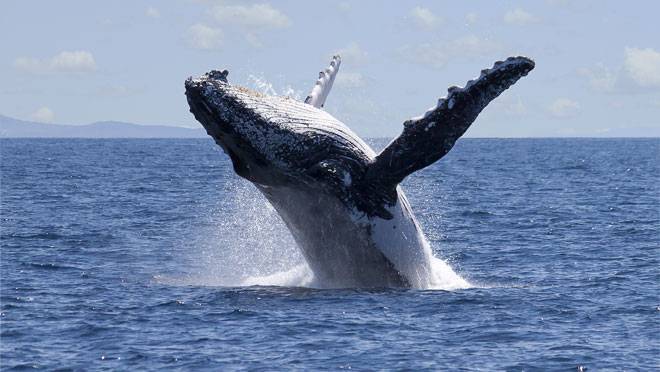Written by Mark Coffin. Originally published in the Chronicle Herald.
If politics worked more like the whale watching business, more of us would want to do it.
If politics worked more like the whale watching business, more of us would want to do it. On a whale watching tour off Digby Neck this summer, I was struck by how collaborative the operators of competing tours were after leaving shore. On shore, the business looks as competitive as any other. There are oversized signs in the shape of whales at one shop, another promises a “whale of a time”, and another still offers free coffee and tea for those aboard. So you buy a ticket and get on a boat.
Offshore, it’s an entirely different game. The boats head into the Bay of Fundy and spread out to cover areas where the whales could be. Here, the collaboration begins. If one captain finds a whale they tell the other captains, so they can bring their own boatful of passengers along to see it. But, the captains have agreed that no more than two boats can observe a whale at a time. With more than two boats the whale feels crowded and gets scared. When the whale gets scared, it dives deep – sometimes swimming miles before resurfacing, leaving boatloads of tourists with no whales to watch.
I asked the captain of our tour why they collaborate with their competitors. He told us about his early days as a tour operator. If a few passengers complained to friends and the media about not seeing any whales or witnessing boats crowding the whales, the story would spread and the whole industry felt the impact for the rest of the season. It didn’t matter how responsible any single operator was, the public lost confidence in the whole fleet.
Independently, without any government intervention, tour operators in the Bay of Fundy developed a code of ethics for running whale-watching tours. The code protects whales, and encourages collaboration that increases passenger confidence in the whole industry (and the chances of seeing a whale).
If politics worked more like the whale watching business, our elections would be as competitive as they are now, and our legislatures would focus on collaboration. Elections would be the time for competition, and to highlight differences between parties and candidates – a time when theatrics that draw attention to these differences are expected. Most importantly, elections would still be when we, the citizens, decide on a general direction for the province, and choose the people we want in charge of getting us there. People might still be frustrated with the process, because competition is always messy, but the winners of these elections would then work in the legislature to restore our confidence in the political process, sending us the message that the exercise we just participated in wasn’t simply for naught.
Since politics doesn’t work like whale watching, our legislatures have been as competitive as our elections.
If politics worked more like whale watching, the periods between elections could be intensely collaborative. All of us who work in politics between elections would understand the importance of conducting ourselves in ways that restore public trust in the process. Governments would look at our legislature (and not themselves) as the most legitimate means of upholding the public interest, and work with that legislature to make good legislation great. Some might hesitate at the notion of collaboration between parties: “these are people that want to take our province in fundamentally different directions,” I can hear my partisan friends say.
I can think of only a handful of substantial differences that separate the elected parties in Nova Scotia. If it appears on the surface that the differences between them are vast, that’s because each thinks it in is in their own interest when the rest of us see that difference as greater than it is. The ideological spectrum in Nova Scotia isn’t really that broad. It’s one where social democrats make massive investments to already-wealthy businesses, and the most conservative party we have trumps the socialists on animal welfare policy. We don’t have many ideologues, but we have plenty of partisans.
There are some very practical ways of making collaboration happen, but the very first thing that needs to happen is for all of us – the public, the media, and our representatives – to adopt a state of mind open to political collaboration.
This week, our newly elected legislature will hold it’s first full session. A majority of this assembly are the 27 first-time MLAs. We need only look at the civility and decorum expressed in the final days of the previous assembly to observe that experienced legislators aren’t always the most collegial or effective. My hope is that MLAs new and old will take to their seats with a mindset of openness, collaboration and willingness to compromise. To do anything else will scare the rest of us off.





